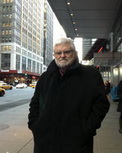 Chris
McDonnell, UK
Chris
McDonnell, UKchristymac733@gmail.com
 Chris
McDonnell, UK
Chris
McDonnell, UK
christymac733@gmail.com
Previous articles by Chris Comments welcome here
November
7, 2018
The
pity of war

The dawn of the 20th century brought with it immense social adjustment following the death of Victoria in 1901. The early Edwardian years saw the beginning of that change although no-one could then envisage the cataclysmic upheaval that still lay ahead.
War in Europe broke out in the Summer days of 1914 when, after the Assassination in Sarajevo, nations faced each other under arms. The expectation that it would all be over by Christmas gave way to a long, protracted struggle with immense human cost. The Great War was like no other.
It was largely a static war where mechanised armies faced each other across open lands, armies settled into trenches with conflict occurring in small skirmishes and great offensives, lives lived and lost in the sun of Summer and the water-logged lands of Winter. The opening of Yeats' poem 'Sailing to Byzantium' comes to mind- "That is no country for old men".
News came home in dribs and drabs, reports took time to reach the newspapers. The electronic communication that is now so familiar was many years distant so the telling of the story took a different form.
Those journalists who reported the War gathered information mostly from military sources and often wrote their stories, certainly in the early months of conflict, with a high degree of national bias. The grim reality of modern warfare was yet to be experienced.
There were others who volunteered for the Cause whose background was different, educated men who were writers whose names we remember under the collective title of the 'War Poets', men who wrote of the conflict, not as observers but as active participants, who wrote their words in the trenches or when on leave after injury. Some lost their lives and their words were published posthumously. It is not possible in the space of this brief column fully to gauge the impact of the war on these young poets, nor the impact that their poetry has had on subsequent generations.
The War that had cost so much in human suffering also took apart the very fabric of society, the consequences of which would echo down the coming years.
One poet of those war years stands above all others, Wilfred Owen. Owen memorably wrote 'My subject is war and the pity of war - the poetry is in the pity'. He was a Lieutenant in the Manchester Regiment who enlisted in the Autumn of 1915. Two years later, suffering from shell-shock, he was admitted to Craiglockhart War Hospital where he was to meet with another of the war poets, Siegfried Sassoon. It was during this time that he wrote the two poems. Dulce et Decorum Est and Anthem for Doomed Youth.
The opening verse of 'Dulce' is graphic and painful to read.
'Bent double, like old beggars under sacks,
Knock-kneed, coughing like hags, we cursed through sludge,
Till on the haunting flares we turned our backs
And towards our distant rest began to trudge.
Men marched asleep. Many had lost their boots
But limped on, blood-shod. All went lame; all blind;
Drunk with fatigue; deaf even to the hoots
Of tired, outstripped Five-Nines that dropped behind.'
and 'Anthem' begins with the words "What passing bells for those who die as cattle?"
This is not the jingoistic writing that praised the glory of war in patriotic tones but the pained reality of experience, the agony of personal suffering.
Owen lost his life only a few days prior to the Armistice in November 1918, killed in action on the Sambre-Oise canal. It was on Armistice day, November 11th , in the Shropshire town of Shrewsbury, that his family received the telegram that told them of his death in action a few days earlier.
He never lived to see the wide recognition and praise of his poetry, words written from the lived experience of conflict. What he would have gone on to write is mere conjecture; what is sure is that his brief months of writing recorded the lives of a lost generation. The Cease Fire that came with Autumn gave Europe twenty one years of peace before the renewed conflict of the mid-Century years.
The English composer, Benjamin Britten, wrote his War Requiem in 1962. It was performed at the opening of the new Coventry Cathedral, replacing the medieval cathedral destroyed in the blitz of 1940. Britten used the traditional Requiem texts interspersed with Owen's poetry.
The Offertorium re-tells the story of Abraham offering his son Isaac. Using the words of Owen's poem, 'The parable of the old man and the young'; it concludes with a haunting repeat of the final lines
'but the old man would not so, but slew his son
And half the seed of Europe, one by one.'
We are now a hundred years distant from the conflict of those early century years. The sole survivor from those trenches, Harry Patch, died in July 2009 at the age of 111. His life spanned a century of bloodshed and anger.
May they all now rest in peace.
====